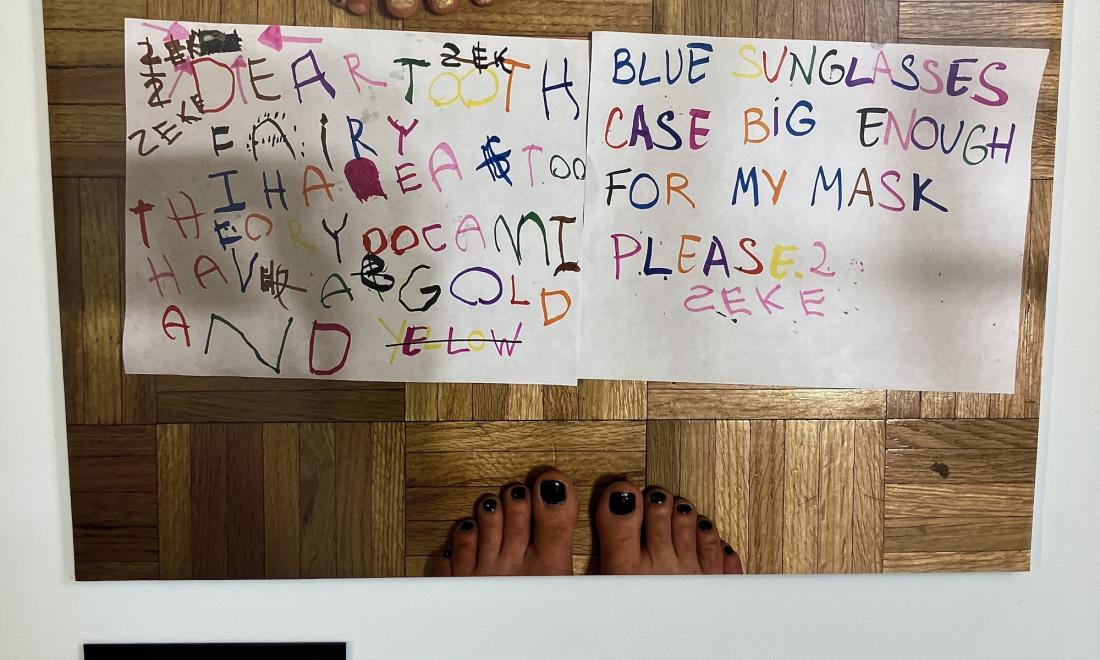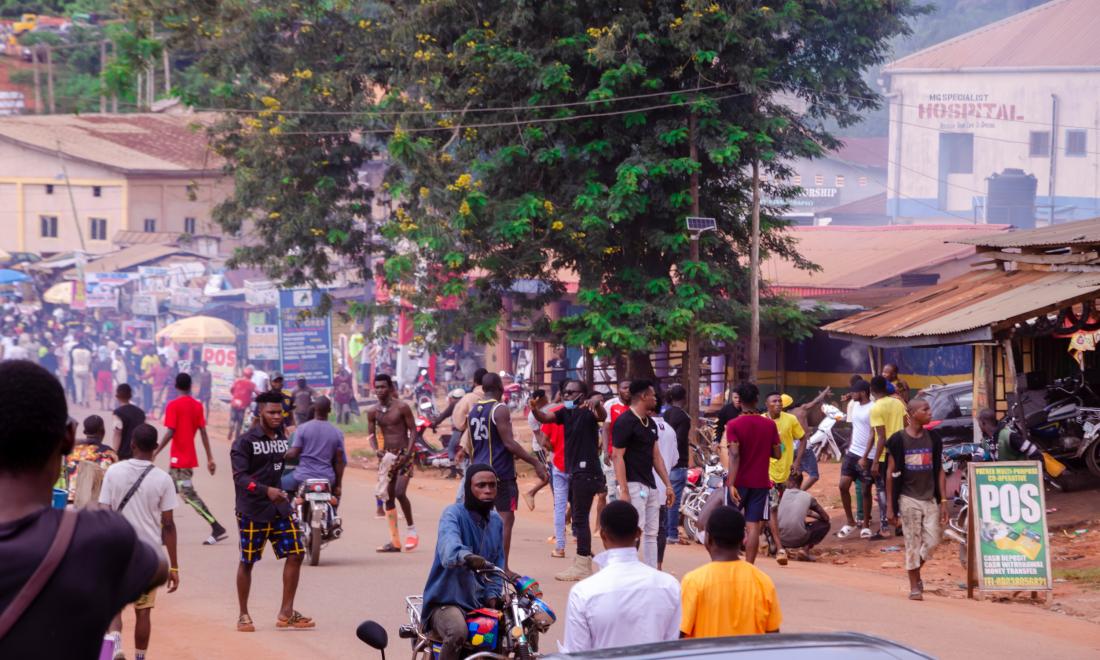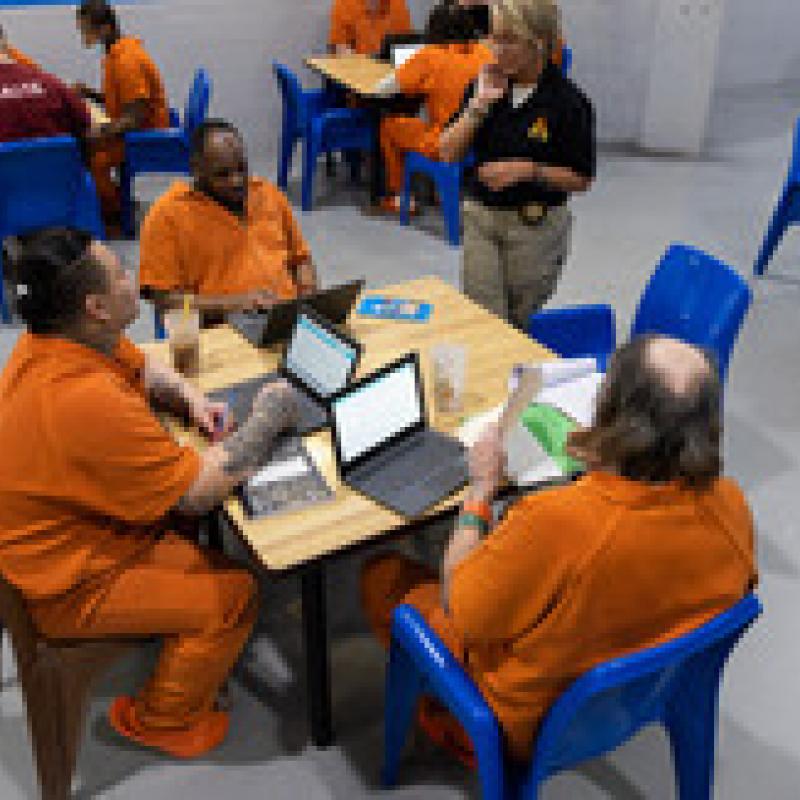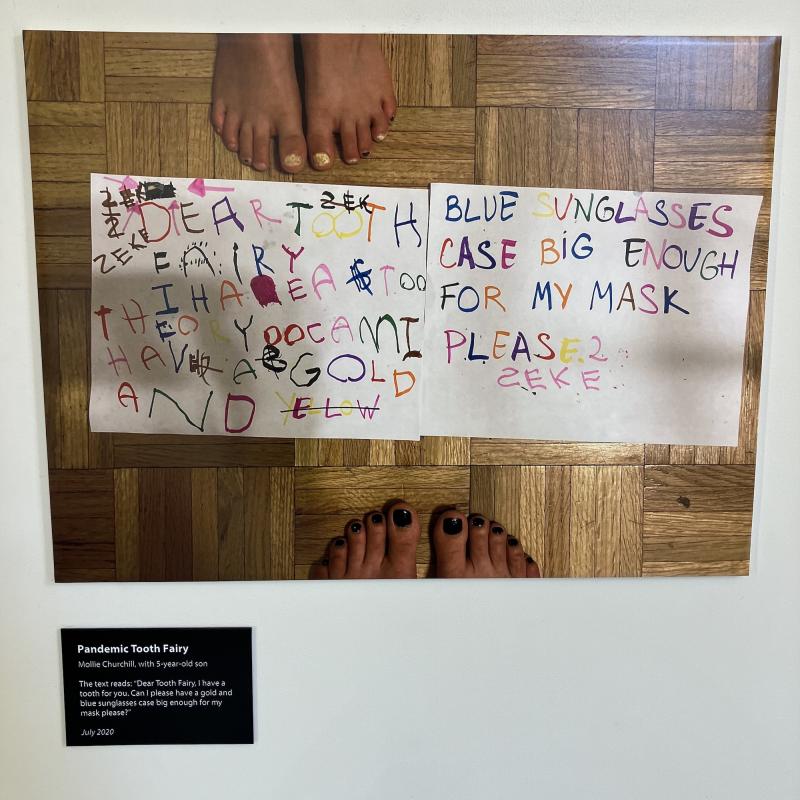News
PSTC News
Reproductive Justice Collaborative Provides Opportunities for Interdisciplinary Research at Brown and Beyond
June 25, 2024
This new initiative seeks to organize engagement in the reproductive justice field within Brown and surrounding communities.
Congratulations to our 2024 PSTC Graduates!
May 31, 2024
On Friday, May 24, members of the PSTC community gathered to celebrate the graduation of 13 PSTC current and former trainees who received PhDs from the Brown University Graduate School this month.
PSTC Researcher-Evaluated Program Reduces Jail Recidivism, Increases Community Trust
May 10, 2024
In a Michigan jail, educational programming led to a reduction in incarceration-based harms.
2024 PSTC Call for Graduate Student Summer Research Awards
April 10, 2024
The PSTC is now accepting applications from graduate students for summer 2024 research awards. Summer research support nurtures research projects consistent with the PSTC’s mission to promote innovative and high-quality...
Brown at PAA
April 3, 2024
We had a wonderful time sharing our PAA experiences and reconnecting with friends and colleagues at our PSTC Reception in Columbus on April 19, 2024. A good time was had by all! The faculty and trainees who presented at...
PSTC Call for Proposals for Mellon Anthropological Demography Awards
March 28, 2024
The PSTC welcomes proposals to advance Brown’s research and distinctive reputation in anthropological demography.
Pandemic Journaling Project Made Accessible to Researchers at New Long-Term Home
March 1, 2024
Researchers studying the COVID-19 pandemic will maintain wide access to this paradigm-shifting historical record at its new placement at Syracuse University
Investigating the Link Between Intra-Occupation Job Variation and Gender Segregation in the Workplace
January 31, 2024
Sociologist Ananda Martin-Caughey is re-examining social survey data to analyze the impacts of job title stratification.
Entrepreneurial Responses to Infrastructure Failures in Nigeria
December 18, 2023
PSTC researcher Daniel Jordan Smith’s 2022 book documents how citizen-government relationships in Nigeria have been impacted by the state’s infrastructural shortcomings.
In the News

Brown economist, education scholar appointed to White House Council of Economic Advisers
July 25, 2024 | | Matthew Kraft
Matthew Kraft, whose research focuses on the economics of education, will spend a year at the White House to offer economic analysis and inform policy development at the highest level of government.

Disaster Management in the Era of Climate Change
July 17, 2024 | No Jargon, a podcast by the Scholars Strategy Network | Elizabeth Fussell
The first major storm of the 2024 season, Hurricane Beryl, made history by breaking multiple records and causing widespread devastation along its path. In this episode of No Jargon, Elizabeth Fussell shares insights on...

Class Time Roulette: Kids Receive Up to Two Years More School Depending on Where They Live
July 12, 2024 | The 74 | Matthew Kraft
Texas and Nebraska mandate that kids get the most instructional time of any state. Hawaii and Nevada require the least.

Which US states and occupations are most in need of foreign-born labor?
July 5, 2024 | Brookings | Dany Bahar
Immigrants comprise nearly 20% of the American workforce. Their share of the workforce has grown steadily over the last 15 years and more rapidly since 2020 as immigrants have returned to work more quickly post COVID-19...

Advocates Call for a Research-Based Approach to Closing Rural Prisons
June 28, 2024 | The Daily Yonder | John Eason
Many rural communities hosting prisons are connected to them economically. Indiscriminate closures could come with grave consequences to people and businesses relying on their presence, researchers say.

This Montana School Solved its Teacher Shortage by Opening a Day Care
June 14, 2024 | High Country News | Matthew Kraft
This school year, Montana, a state with fewer than 8,000 teachers, had 1,000 unfilled teaching positions. Meanwhile, Dutton-Brady Public Schools, a rural district about an hour from the Canadian border, easily filled its...

How Israel’s Economy is Faring Eight Months into War with Hamas
June 7, 2024 | NPR Marketplace Morning Report | Dany Bahar
“Marketplace Morning Report” spent some time looking at the economic reality behind the war between Israel and Hamas. First, they looked at the economies of Gaza and the West Bank before and during the current conflict....

These 3 Locations Have Haunting Connections to Strange Illnesses
June 3, 2024 | Discover Magazine | David Savitz
While some of these illnesses have a likely source, there are a few that have researchers stumped.















